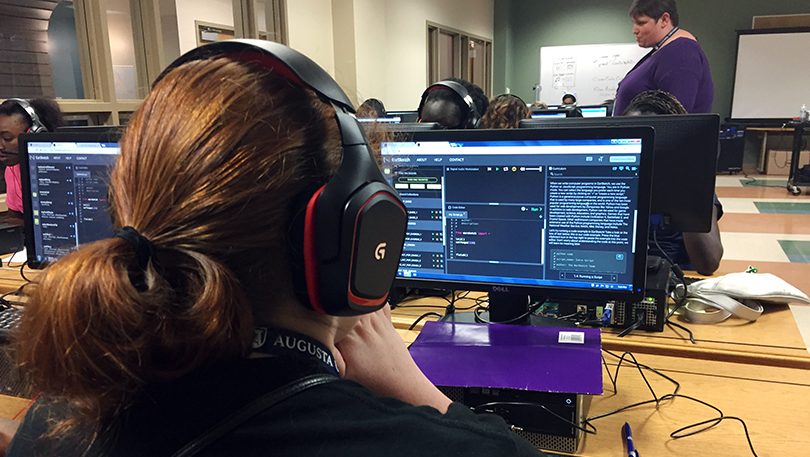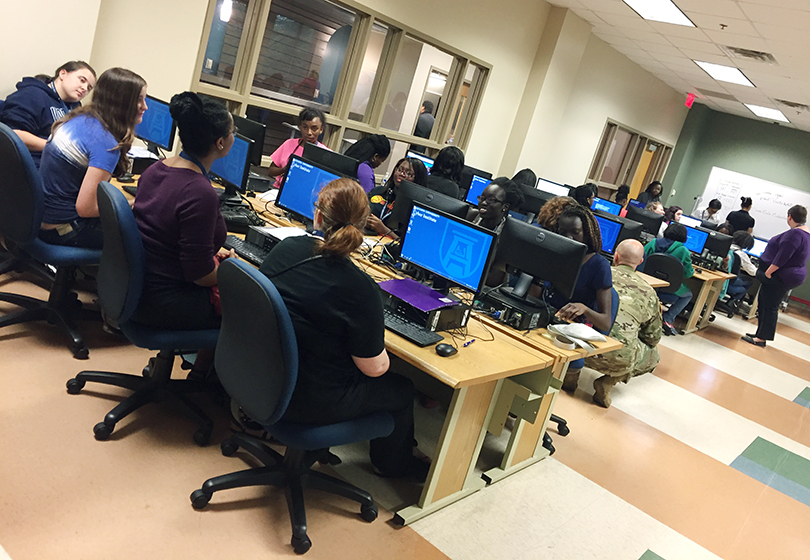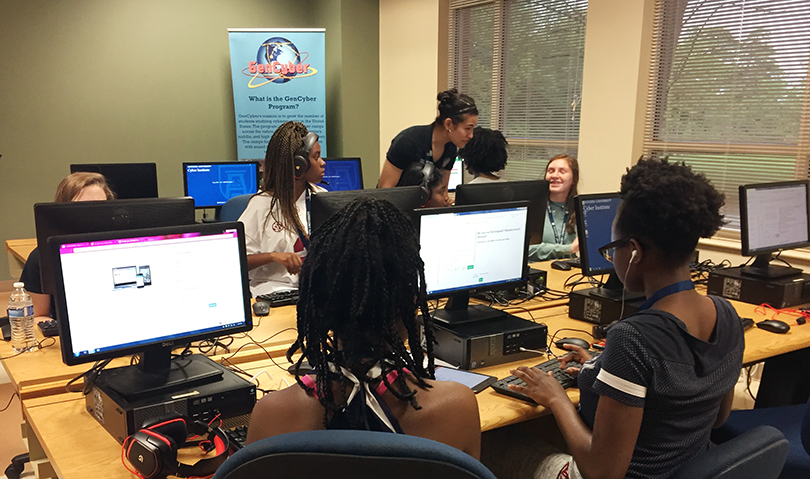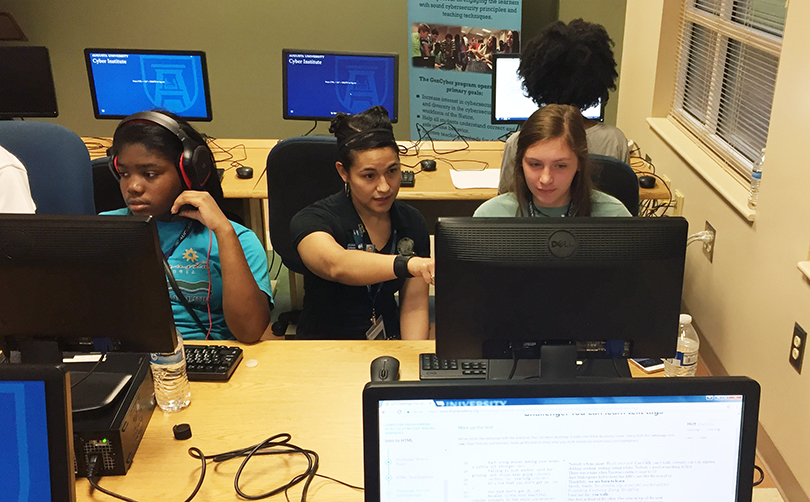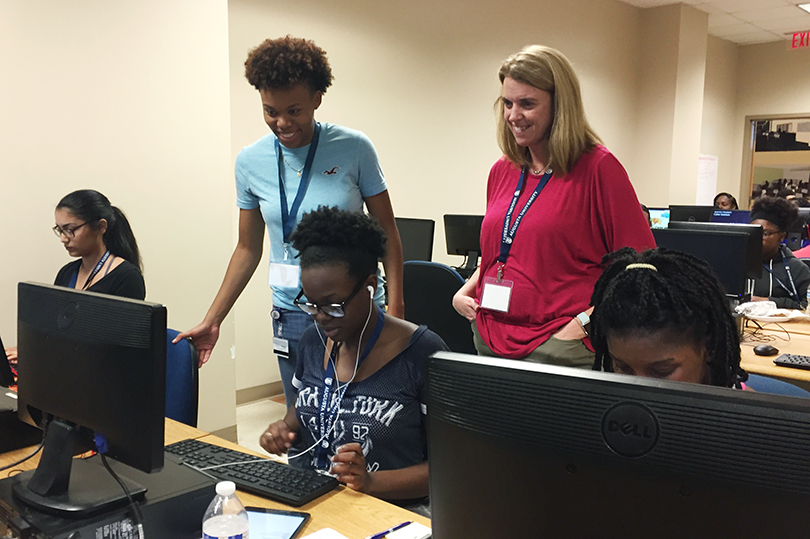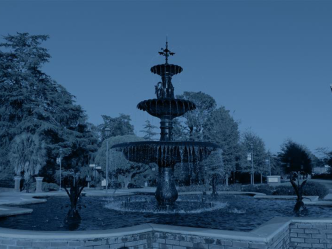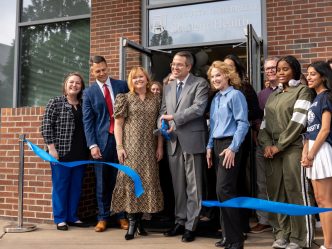In a field of problem solvers, cybersecurity experts have a workforce challenge they are trying to overcome — a hurdle that if crossed will help people in the field better solve problems.
The obstacle they face? The lack of diversity — especially the low number of women in computing.
“You need that diversity to help solve a problem because everyone is going to be looking at it from different angles, from their perspective,” said Karen Ribble, assistant director for operations at the Augusta University Cyber Institute.
To help increase diversity — and the number of women — in the cyber field, Ribble and Joanne Sexton, director of the Cyber Institute, partnered with the U.S. Army Cyber Center of Excellence at Fort Gordon to create a Girls Who Code club at Augusta University.
“The whole purpose of Girls Who Code is to introduce the girls to technology — specifically coding,” Ribble said. “There’s a bit of empowerment and confidence building as well.”
The Girls Who Code program at Augusta, which kicked off in March, introduces basic concepts of coding to girls from sixth through 12th grades. Concepts include principles of web pages and apps, coding for animations, and ethics of hacking.
“You have to introduce computing at a younger age to get the girls knowing that they can do this and build their skills and build their confidence,” Ribble said.
In its first year, the program is at capacity and had to create a waiting list for next year. The club is currently introducing computer science to 51 students from 16 public and private schools in Richmond, Columbia and Aiken counties. Some of the students are also home-schooled.
“We have a really diverse group of girls that are part of this program,” Ribble said.
To teach the students, the Cyber Institute staff is counting on two Augusta University female students and female information technology professionals with the Cyber Center of Excellence.
“This is an amazing opportunity for these girls — especially with technology,” said Toryana Jones, a junior information technology major and one of the students volunteering with Girls Who Code. “I felt that if we gave them some motivation and let them know, ‘Hey, you can do this, too. It’s not just male dominated,’ then they can do anything they want. And they will never be out of a job.”
The curriculum for the program is based on the national organization Girls Who Code, which was founded in 2012 to bridge the gender gap in the technology field.
According to the organization’s website, the cyber field will have 1.4 million job openings in the United States by 2020. American workers will fill only 29 percent of those vacancies. Out of those 29 percent, only 3 percent are women.
Maj. Julianna Rodriguez, who works for the Cyber Center of Excellence and is volunteering with Girls Who Code, knows the problem all too well.
“There are a lot of women interested in [computer science], but then you see that they don’t form much of the percentage of the workforce,” Rodriguez said. “Specifically for women, we need to show them that it’s possible, that they can, without too much effort, start to get into it. Then with more effort, they can really create some useful and helpful things.”
To help close the gender gap in technology, the Cyber Institute staff wants to start inspiring girls early and build the K through 12 pipeline, Ribble said.
“If we can show the girls just a little bit of those opportunities and get their confidence building that yes they can do this, then the sky is the limit for them,” she said. “If only one of these girls chooses a tech career, then we’ve made a difference. Obviously we want to have an impact on more than one.”
 Augusta University
Augusta University
